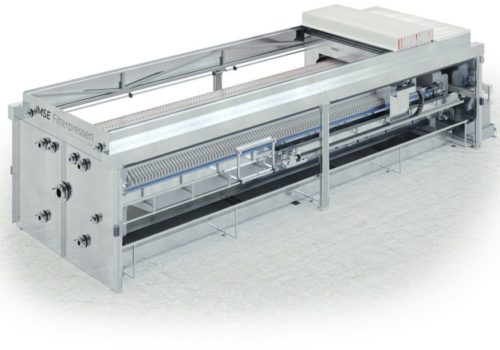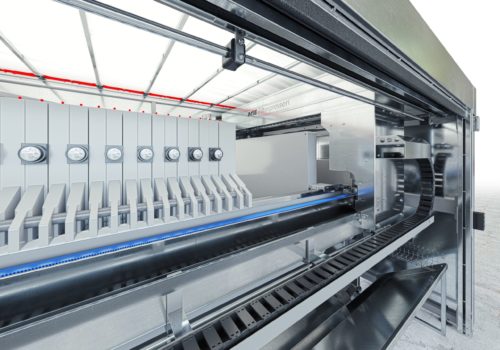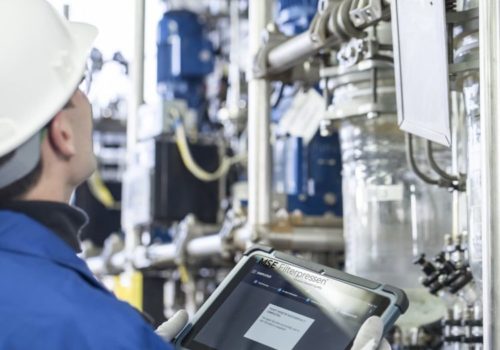In an ideal filtration process, the filtrate can drain off freely. In order to achieve the ideal filtration, it is important to optimise the filtration process so that the filtration pressure initially increases slowly and then rises significantly when the filter cake is compressed in the chambers of the filter press. At the same time, the throughput and flow rate should be kept at a high level as long and constantly as possible and only be decreased when the layer to be passed through grows. The suboptimal filtration process and the accompanying optimisation of the same are due to the following factors:
-
- Changes in the production properties
-
- Further development of your production plants
-
- Rising energy and personnel costs
-
- Correction of errors in the design
OBJECTIVE
The general goal in optimising the filtration process is to increase the throughput capacity in the filter press, to increase the filling level of the chamber filter press, to improve cake treatment, e.g. cake washing in membrane presses, and to generally increase the degree of drying in filter presses. At this point, we develop process technology problem solutions for our customers and then assist them up to optimisation in the daily operation.
DECISIVE FACTORS FOR THE FILTRATION PROCESS
The course of a filtration process is influenced by many factors. The following list contains only the most important of these:
-
- Suspension
-
- resulting filter cake structure
-
- when using filter aids
-
- dosing
-
- dosing technology
-
- handling
-
- when using filter aids
-
- filter cloths
-
- pumps and peripherals
In practice, it is not possible to change these factors arbitrarily. In waste water treatment plants, it is often possible to treat the suspension by thickening, for example, or to positively influence the filtration by adding filter aids. In product filtration, the possibilities of influencing the filtration are often very limited. The suspension cannot be changed and therefore the use of filter aids is often not possible. Ultimately, only the selection of the filter cloths in combination with the pump (type, performance, control) can change the filtration process. In this context, the degree of filling can be improved and the existing potential of the filter press can be exploited by automatically adapting the output rate to the requirements of the process phases by recording the feed pressure, output rate as well as the output amount and the speed control via frequency converters.
LAYER STRUCTURE OF THE FILTER CAKE
In general, with regard to a solid filter cake result, it is important that no barrier layer is formed during the cake-forming filtration which hinders a uniform cake build-up. The suspension to be filtered must therefore be made to form a filter cake that is capable of being drained. The adjustment of the fabric to the suspension reduces the initial filtration resistance of the fabric, which results in an improved cake structure and better drainage. The addition of flocculants or supporting agents can also enhance the result. However, if the composition of the suspension must not be changed, the result can only be optimised by adjusting the filter cloth accordingly.







